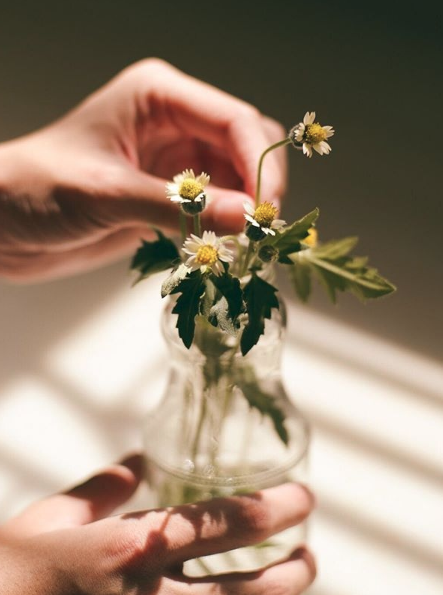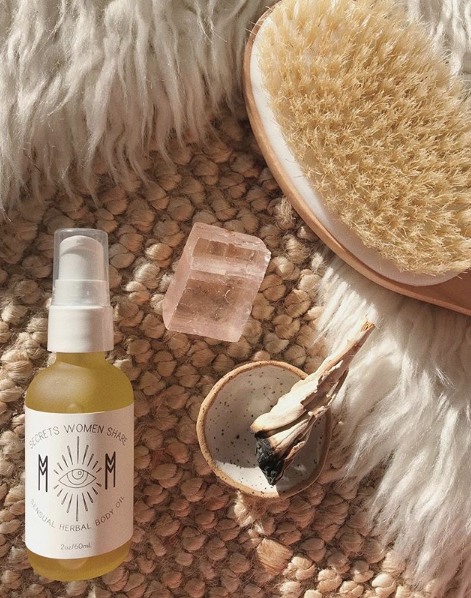Igniting Sensuality & Embracing Sexuality in Motherhood: An Oh Baby Interview
Before going through the transition herself, I don’t think a woman can ever fully prepare for how transformative the journey from maiden to mother truly is. Almost every aspect of your life changes as you adapt to the requirements of your new role, but prior to having kids most women rarely consider how becoming a mother will redefine their sexuality. Probably because the concept is not often talked about openly. When it comes to sex in motherhood, the only thing that’s really discussed is “when intercourse can resume after birth”. But a mother’s sexuality is much more multifaceted than this and a larger conversation needs to be had.
There’s a multitude of factors that may be causing new mothers to feel disconnected from their sexuality, such as shifting hormones, lack of sleep, anxiety, traumatic or disempowering birth experiences, or feeling unfamiliar with their new postpartum body. Not to mention the overarching cultural stigmatization of a woman’s sexuality once she becomes a mother. Sex creates babies but once the duty of procreation is complete, women are basically expected to dismiss this integral essence of their former selves.
Dr. Marlene Ehrler is a Naturopathic Doctor and founder of Motherhood Medicine. She is actively dismantling the oppressive narratives that motherhood and sexuality should remain mutual exclusive. Her incredible work supports mothers in connecting with their sensuality as a vital piece of their health and wholeness.
The changes in a woman’s sexuality and sensuality after becoming a mother aren’t usually talked about. How can creating a dialogue around this assist in better navigating this transition?
I usually start by asking: What does it mean to you to be a mother? Many times the answer is relatively monotone: a caretaker, a homemaker, a woman whose life revolves around her children. Why are our ideas of mothers so singular and passive? You have to have sex to become a mother, so why aren’t mother’s allowed to be seen as sexual beings?
This examination of why we think the way we do is the most foundational place to start. This inner journey often sparks numerous questions and facilitates meaningful dialogue, not only within ourselves, but with other women in our community. Sharing our story normalizes our experience not only for ourselves, but for all mothers.
Our culture doesn’t celebrate the multifaceted identities of mothers. How does our conditioning impact our deep seeded notions of sexuality in motherhood?
When you take this unlocked sensual energy that can occur in pregnancy and motherhood and hold it against the light of society’s traditional expectations of a mother, the contrast can be shattering. Then add in the societal constructs of relationship expectations, and the level of judgment becomes exhausting.
Think of a single mother who had her baby “out of wedlock”. What is your immediate impression of her sensuality? Maybe “risky”? Think of a mother who has been married for 4 years, and just had her baby. What is your immediate impression of her sensuality? Maybe “prude”? What if I then told you the single mother was a Nasa space engineer, and the married woman is on unemployment. Did your impressions then change? Why?
Because of our conditioning.
We view the world through conditioned lenses that have been a huge collaboration by our parents, our community, society, media, relationships, organized religion, school, and our lived experience. Sex, sexuality, and sensuality mean something different for everyone, and depending on a woman’s “circumstances” we make judgments of their sexual expression. For whatever reason, the sexuality of mothers is especially taboo and seems to be public domain for judgment.
New mothers are often concerned about their low libidos. Is there anything you can you share to help normalize this topic and support women who are going through this.
On a day to day basis, women have 10 times the amount of Oxytocin (the love hormone) than men. After we give birth, and for months (and even years) after, we are swimming in a pool of Oxytocin. We get Oxytocin surges from breastfeeding, from hearing our baby cry, from kissing or smelling our children, or even just looking at them. For men, their levels of Oxytocin only come close to ours at the time of orgasm. After baby, men are still seeking intimacy and connection because this is the only time they experience hormonal equilibrium. However, on a biological level, we as mothers are hormonally satisfied postpartum.
Enter the mama who is probably a bit uncomfortable adjusting to her new body, is swimming in a pool of oxytocin, but is also probably very stressed. Stress hormones stamp out any remaining artifacts of a libido. This is the perfect formula for drastically decreasing our desire for sex. Then add an equally as stressed partner who instead of swimming in an oxytocin pool, is drowning in testosterone (the aggress and protect hormone). Every time baby cries, dad gets a surge in Testosterone (instead of Oxytocin), which makes sense biologically because they need to be able to protect the nest from threats and invaders. Put each of these parents in a bedroom on date night, and mom is going to be surging with oxytocin and stress hormones thinking about baby, and dad is going to be still trying to come up for air in the ocean of testosterone. It’s a recipe for disaster, and it’ss one of the greatest examples of nature’s sense of humor.
But rest assured, this is actually an intelligent design by nature: the high levels of circulating oxytocin in mom and testosterone in dad keep our focus on nurturing our children and ensuring their survival. Additionally, dismal libidos help prevent getting pregnant again too quickly, which would compromise the vitality and survival of our next generation of species! Bravo nature!
Having sex and feeling sensual can mean very different things. It's not uncommon for women with young kids to have sex with their partners out of guilt or as an attempt to regain their sensuality. But seeking your sensuality in a partner can prove futile if you haven’t been able to access it from within. What practices can a woman take to connect to and celebrate her sensuality?
My first and most important recommendation is to ask yourself: What brings you pleasure? Whatever it is, do more of it. Make the time. Share your answers with your partner with zero expectation. But until we are fully able to answer that question, where do we begin?
The first thing I see in my practice is the mind not being connected to the body. On a foundational level, this is huge. We must do things that connect us to our body to open the portals for sensuality—and a lot of times this is best accomplished with gentle practices that are done solo.
Herbal body oiling is a tried and true practice that allows us to drop into our bodies and remind ourselves that our skin loves to be loved. I designed the Secrets Women Share Sensual Herbal Body Oil specifically for women who are looking to redefine their sensuality and sexuality. I oil my body every day (most herbalists and wild women I know do too) for the main reason that it is the quickest and easiest way to ignite vitality and creativity both in and out of the bedroom. The targeted botanicals in this formula support energy, reproductive wellness, feelings of safety and calm, promote healthy circulation and acts as a gentle aphrodisiac. Used solo or with a partner, this oil allows us to connect and celebrate our inner flame.
It’s easy for mothers to feel ‘touched out’ after holding and caring for a baby all day. How can anointing or massaging yourself help you reclaim your body and sense of self?
As mothers, we are flooded with nearly constant sensory stimuli (mental, emotional, and physical) and this shoves us into a sympathetic (flight or flight) state—creating the feeling of being “touched out.” Taking time to nourish the nervous system and gently guide it towards the parasympathetic state is a necessity, and I have found that the easiest and most effective way for mothers to do this is through herbal body oiling, and there is science to support it. Oiling the body not only brings immediate relaxation to the nervous system, but also helps sustain that state of relaxation over time with continued practice. The medicinal properties of the herbs in the Eyes Of The World Herbal Body Oil are targeted to help alleviate the effects of stress and tension, all my while protecting our energy and promoting a calm, relaxed state of mind. An additional perk of body oiling is that it can be done in the comfort of our own home at any time, which is crucial for mothers. I often recommend this practice after you have put your children to bed, or when you first wake up in the morning. However, if you pause and retreat to give yourself a quick tune-up in the afternoon, I promise when your kiddo is banging on the bathroom door 30 seconds later, you’ll open it a little more easy going than before!
Thank you so much Marlene!
I'd love to hear your comments below. Are you struggling with a low libido? Do you actively participate in self-care rituals that support your sensuality? Let's share our experiences and help to normalize this important topic.





